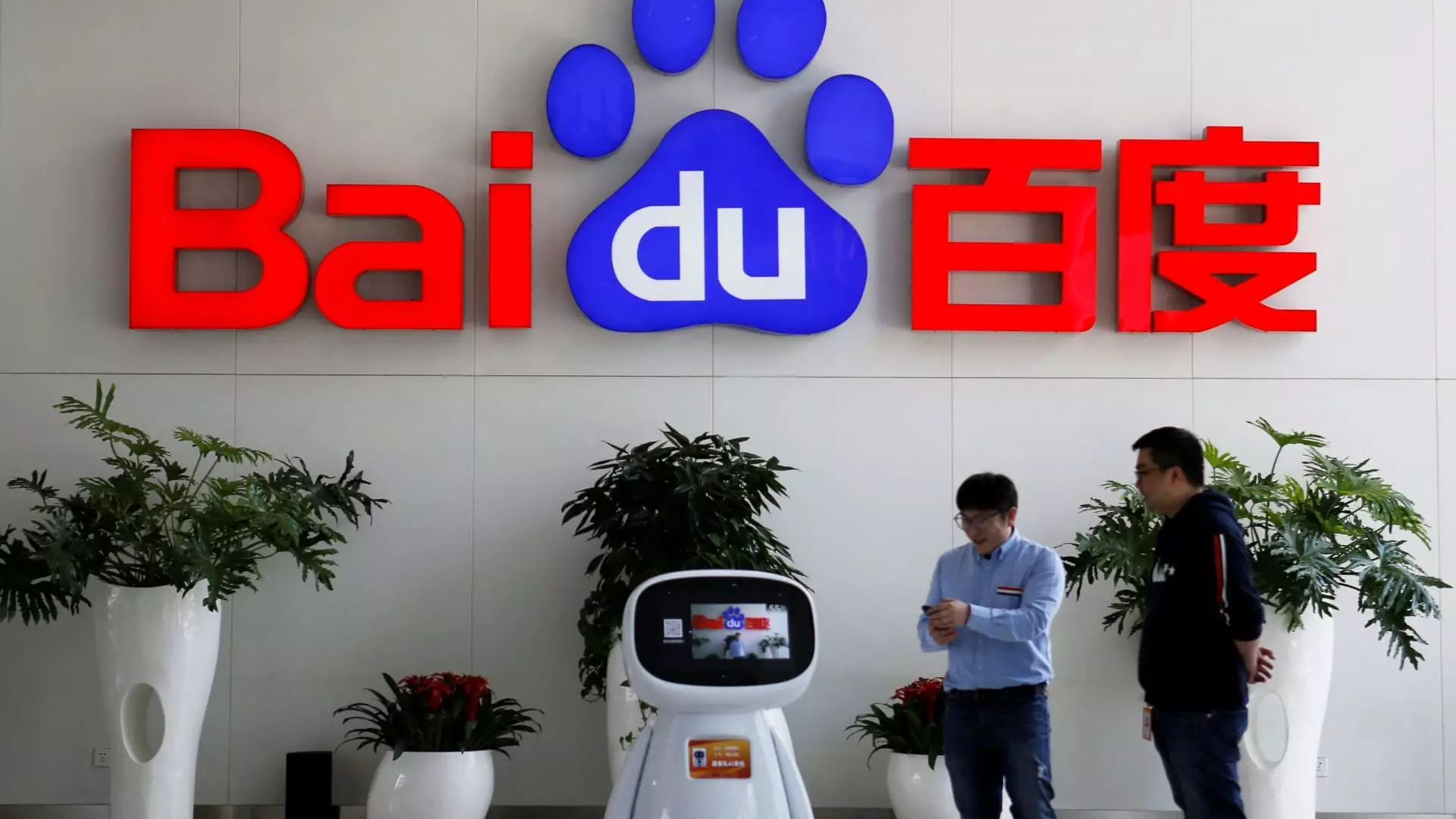The artificial intelligence (AI) industry is undergoing a significant transformation in China, marked by an increasing number of players vying for dominance. Baidu, a frontrunner in this race, is poised to introduce its AI model’s next iteration, known as Ernie 5.0, later this year. This move comes at a time when innovators are reshaping the expectations and capabilities of AI, pushing established companies to continually evolve in order to maintain relevance in a highly competitive marketplace.
Insiders indicate that Ernie 5.0 is expected to enhance its “multimodal capabilities,” though specific details about its functionalities remain undisclosed. Multimodal AI refers to systems that can analyze and generate content across different formats, including text, images, videos, and audio. The ability to convert information from one mode to another—such as text to video or vice-versa—could redefine user interactions and applications of AI technology.
This advancement reflects broader trends in AI, as foundation models grow in sophistication. These models are designed to understand complex languages while performing a multitude of tasks, from text generation to image synthesis and conversational exchanges. The anticipated improvements in Ernie 5.0 signal Baidu’s commitment to compete with leading AI firms both domestically and internationally.
As Baidu prepares to unveil its upgraded model, it is important to consider the competitive landscape. Companies like DeepSeek have emerged recently, shaking up the sector with their open-source AI solutions. DeepSeek’s ability to provide robust reasoning capabilities at significantly lower costs than competitors has caught the attention of the global market, sparking concerns among established players. This competition is not just a technological challenge; it also creates financial pressures, where stock prices of major tech companies fluctuate in response to these innovations.
During a recent summit in Dubai, Baidu’s CEO, Robin Li, emphasized a significant reduction in inference costs associated with foundation models, claiming that costs could drop by over 90% within the next year. Such economic impact translates to enhanced productivity across various sectors that leverage these advanced AI models.
Baidu was quick to launch its chatbot, Ernie, in March 2023, becoming one of the first major Chinese companies to do so. However, since its debut, the landscape has shifted dramatically as new competitors have introduced their own versions of AI chatbots—many of which have gained traction among users. Although Baidu’s initial momentum was promising, the company has found itself overshadowed by rivals, such as Alibaba and ByteDance, which have successfully captured market share and generated substantial investor interest.
Baidu’s shares have seen modest growth of around 6% this year, especially when juxtaposed with Alibaba’s 33% increase. This disparity highlights the pressure on Baidu to innovate continuously and effectively market its unique offerings to reclaim its status within the industry.
Future Directions and Innovations
Notably, Baidu’s Ernie model has already integrated generative AI across its products, demonstrating its versatility and the company’s strategic foresight. The Wenku platform, a tool for creating presentations, has garnered impressive subscriber numbers, reflecting strong demand for user-friendly AI applications. The implementation of updated features, such as AI-generated presentations based on financial filings, demonstrates Baidu’s intent to stay at the forefront of AI advancement.
While Ernie 4.0 was launched in October 2023, followed by a turbo version in August 2024, the forthcoming release of Ernie 5.0 will be crucial in determining Baidu’s market positioning against key competitors and its ability to capture the imaginations of consumers and businesses alike.
As the industry evolves, with OpenAI’s recent ChatGPT updates offering additional competition, the journey ahead for Baidu is laden with both challenges and opportunities. The outcome of this developmental race will likely influence the AI landscape on a global scale, reshaping not only technology but also economic paradigms.
Baidu’s ambitious plans for Ernie 5.0 highlight the company’s determination to navigate an increasingly competitive terrain. As new AI models emerge, the need for constant innovation and adaptability becomes essential. The battle for AI supremacy is only just beginning, and it will serve as a critical factor in determining the future of technology-driven markets.

